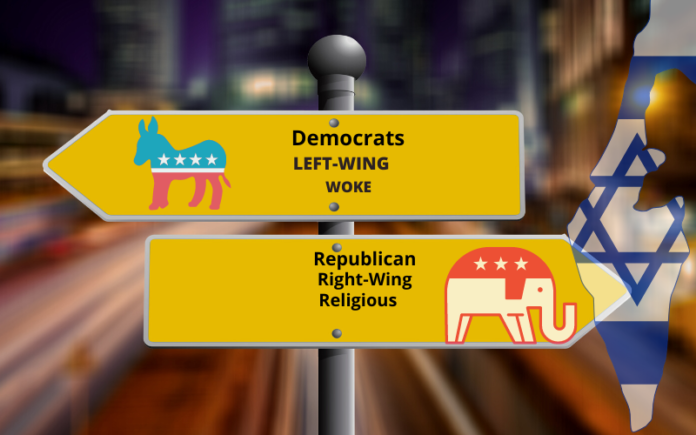Samuel J. Abrams and Jack Wertheimer
Tablet, June 24, 2022
“Levels of religious conviction, denominational identities, worship service attendance, and other expressions and measures of religiosity correlate with how most Americans vote in elections and identify politically in surveys.”
It is a truism among many observers of the current socio-political scene that politics has become a substitute religion for large numbers of Americans. Writing about the sacralization of politics, Shadi Hamid, for example, stated that “on the left, the ‘woke’ take religious notions such as original sin, atonement, ritual, and excommunication and repurpose them for secular ends…; [while] on the right, adherents of a Trump-centric ethno-nationalism still drape themselves in some of the trappings of organized religion, but the result is a movement that often looks like a tent revival stripped of Christian witness.” All this has led, some claim, to the high levels of ideological intensity, social division, and demonization in the realm of politics that once were the preserve of religious zealots. And this intensification of passions and commitments—both political and religious—is an important dimension of social “sorting” and polarization, with more Americans taking more uniformly left-leaning or right-leaning positions in both politics and religion.
The relationship of politics and religion also has shifted in an additional way. Until sometime in the last third of the 20th century, adherents of certain religious denominations gravitated to the Republican party and others to the Democrats. But both parties—and their respective political camps—attracted people seriously committed to their religion. That pattern has changed in recent decades with the opening of a “God gap” or “religiosity gap.” As early as the 1980s, many in the Bible Belt and those associated with the evangelical movement went from being relatively neutral on political matters to becoming highly engaged, generally with the Republican party and conservative political positions. Recent research indicates that partially in reaction, people who were less religious gravitated toward the left side of the political spectrum.
In brief, a revolution has transformed the political allegiances of large swaths of Americans: levels of religious conviction, denominational identities, worship service attendance, and other expressions and measures of religiosity correlate with how most Americans vote in elections and identify politically in surveys. Broadly speaking, “religious” people—however measured—tend to lean Republican politically and conservative in their ideology. Their opposite numbers—the “non-religious” or secular—often favor Democrats and are ideologically liberal. To take just one of many research studies, the Pew Religious Landscape Study finds numerous links between measures of religiosity and political ideology (conservative-moderate-liberal). As a general phenomenon, conservatives, far more than liberals, believe in God, see religions as important, attend religious services weekly, pray daily, see religion as a guide to morality, read scripture, and believe in heaven and in hell. Any way you slice it, conservatives today are more religious, liberals are more secular, and moderates are in-between.






